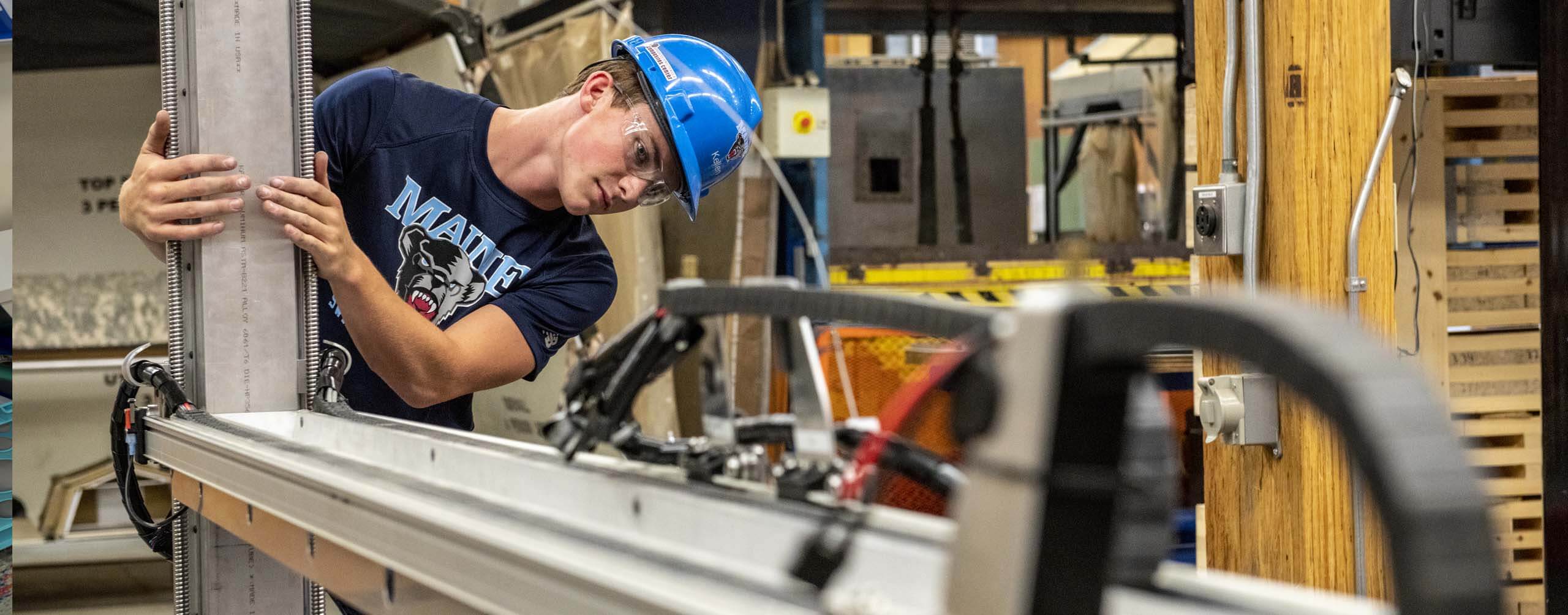
Civil and Environmental Engineering
Maine College of Engineering and Computing
Civil and Environmental Engineering students study the planning, designing, and constructing facilities to serve society, all providing for the health and safety of its citizens. These facilities include highways and railroads, bridges and tunnels, airports and harbors, hydroelectric dams and power plants, irrigation and flood control projects, and the foundations and frames of buildings.
Civil and environmental engineers take on many important roles and it is UMaine’s priority to help prepare them. The multifaceted nature of this society-serving profession dictates that civil engineers have proficiency in five areas: structural, geotechnical, environmental, water resources, and transportation engineering. To achieve that objective, students need to be proficient in mathematics through differential equations; probability and statistics; calculus-based physics; and general chemistry.
As undergraduates, our students have the opportunity to work on groundbreaking research in UMaine’s renowned Advanced Structures and Composites Center. Many students also work side-by-side with faculty members on geotechnical engineering and environmental and structural research. Students gain hands-on experience in UMaine’s award-winning concrete canoe and steel bridge teams.
Design is integrated throughout the professional component of the curriculum by means of design experiences and by functioning on multidisciplinary teams.
The ability to conduct laboratory experiments and to critically analyze and interpret data in more than one of the four above-mentioned major areas is emphasized throughout the program.
Since civil and environmental engineering is a societal profession, our engineers may also be faced with economic, ethical, political, social, and legal issues. Moreover, civil engineers must be able to communicate effectively both orally and in writing. Therefore, societal issues and communication skills are emphasized in our civil and environmental engineering courses.
At UMaine, engineering classes are small. UMaine’s College of Engineering offers a five-year B.S.–M.B.A. degree with the Maine Business School, as well as a minor in engineering leadership and management. We offer state-of-the-art teaching and research facilities. Undergraduates have the opportunity to do meaningful research alongside faculty. Professors, not graduate students, teach classes. We have a high placement rate in top graduate programs. UMaine’s Foster Center for Student Innovation offers courses in innovation engineering.
Civil and environmental engineering faculty and students at UMaine have received numerous university and national awards for teaching, research and community service, including three Carnegie Foundation Maine State Professors of the Year.
Civil and Environmental Engineering
Maine College of Engineering and Computing
Boardman Hall
207.581.2171
